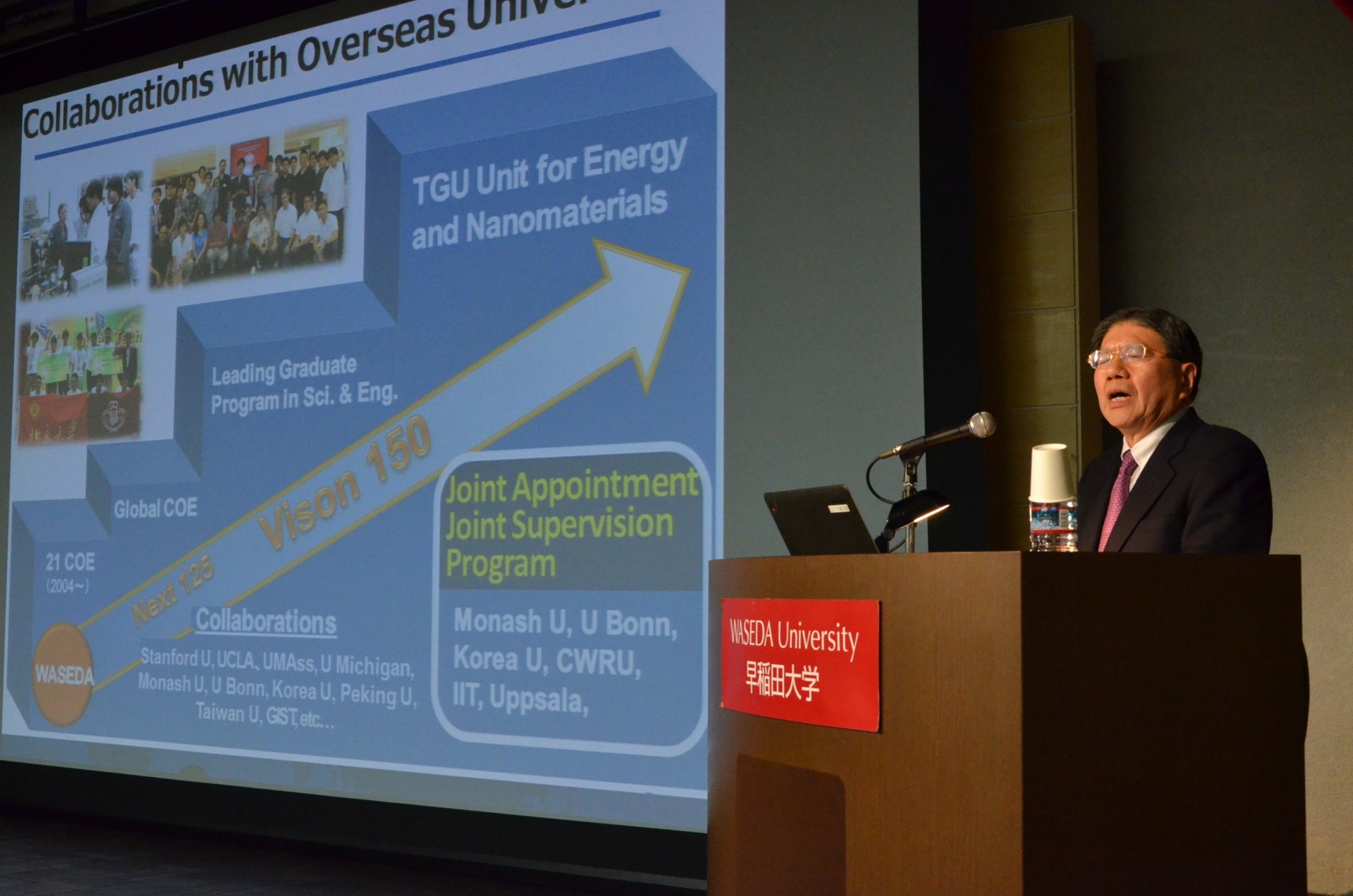Report of the International Symposium “Universities in Global Society: Framework of Education for Prospective Global Leaders”
Current status of the Waseda Goes Global Plan
Waseda University hosted a discussion of the future of education in the global society, including its leading programs which realize truly collaborative education and research with top universities around the world.
The Waseda University Top Global University Project (TGU) Steering Conference organized the International Symposium “Universities in a Global Society: Framework of Education for Prospective Global Leaders” held on January 23, 2017.
Focused on international collaboration in education and research, sections introduced global initiatives at Waseda University, such as the Joint Appointment System (JA) and the Joint Supervision Program. Doctoral students and faculty members from partner institutions shared their experiences in these programs. Furthermore, the symposium included presentations on global engagement strategies by representatives from universities in Australia, Germany and Korea, which have built new educational frameworks for the Top Global University Project.
Professor Shuji Hashimoto, Senior Executive Vice President for Academic Affairs & Provost of Waseda University, opened the event saying, “Waseda Vision 150 strategic plan and the Waseda Goes Global Plan have organically joined together to further enhance the University’s research and education reforms, which have quickly intensified the transnational circulation of knowledge. Our international expansion and cooperation strategies are not only crucial to Waseda but to Japan as a nation. Therefore, we look forward to advancing Waseda’s reforms even further and having our students take full advantage of those academic opportunities, where they can experience research and education at the highest international standards, gaining experience to become global leaders.”
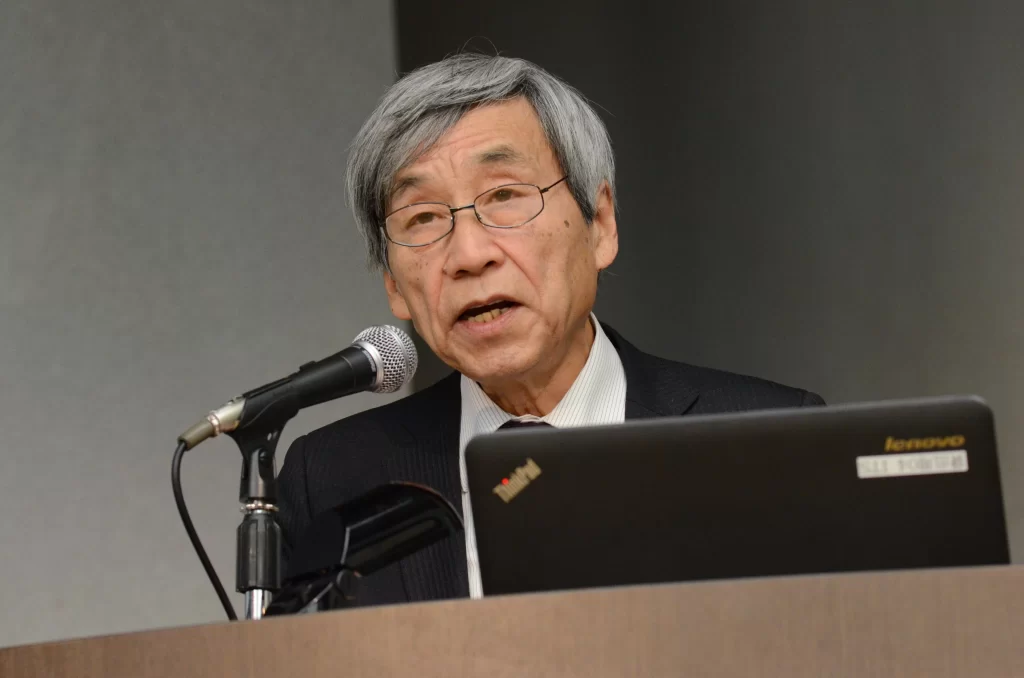
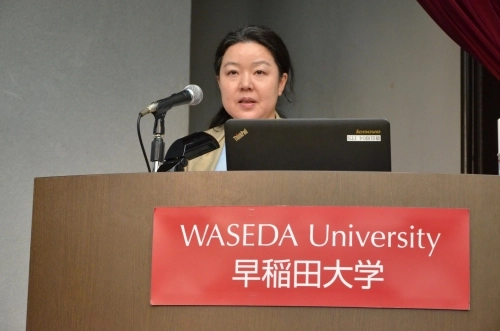
In her address, Taka Horio, Deputy Head of the Office for International Planning at the Ministry of Education, Culture, Sports, Science and Technology (MEXT) Higher Education Bureau, expressed her expectations for Waseda. “Because we live in a new era which no one has experienced before, this is a starting point for creating new knowledge. As institutions nurturing the future generations, there is a demand for universities to play even larger roles than before. Universities must reach out beyond national boundaries to cooperate in improving the quality of research and education. We expect that these efforts will contribute to building a better educational framework for the global society as well as university reforms in the coming age.”
In the first plenary talk, Waseda Professor Norimasa Morita, Vice President for International Affairs, presented the current situation of and future plans for the University’s global engagement. He explained that Waseda currently has over 5,000 international students and that it is considered a pioneer in Japan in setting up double degree programs. Morita also added that the University ranked first in Japan and 26 in the world in the QS Graduate Employability Ranking, which is calculated from measures such as achievements of graduates and reputation among employers. Furthermore, he spoke of the University’s goals to enroll even more international students, send more students overseas, and host more researchers from abroad, in order to enhance the academic environment for resolving international issues.
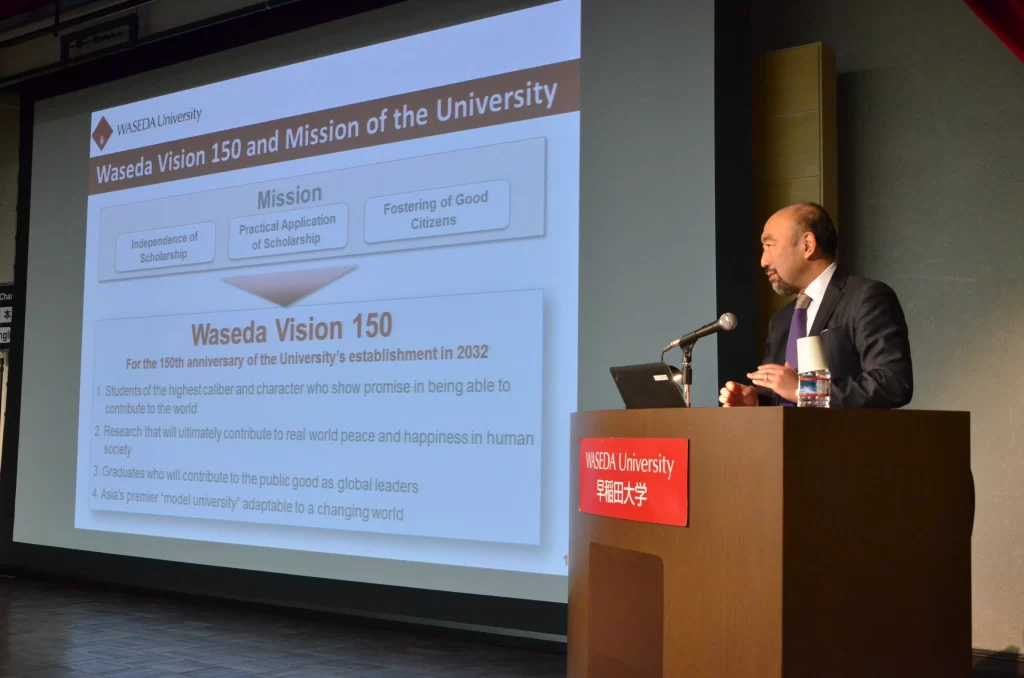
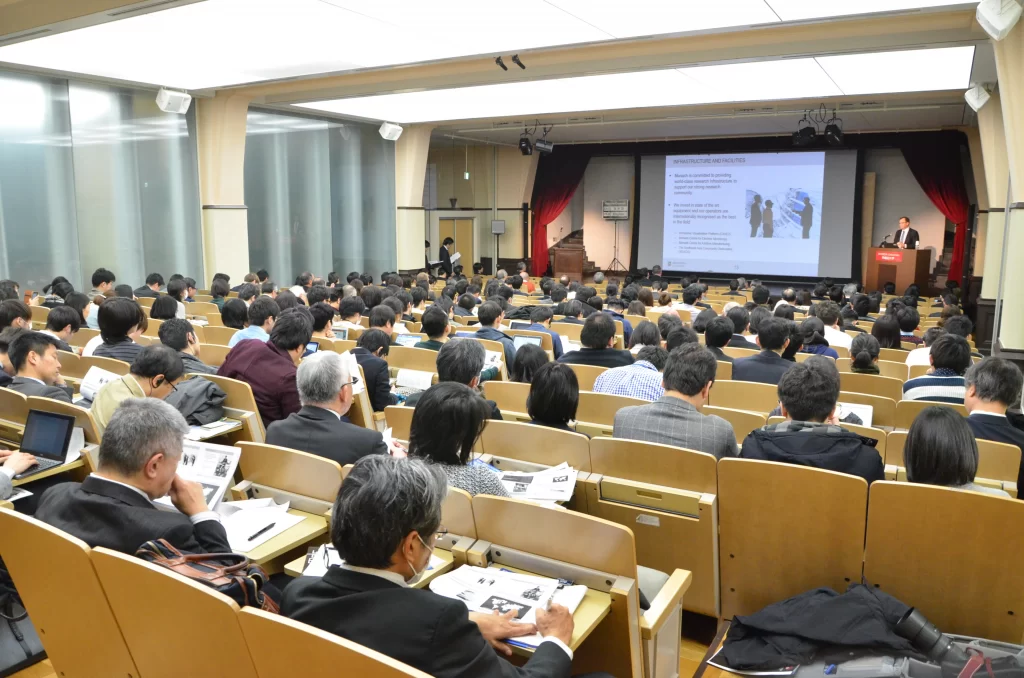
The following presentations on global engagement strategies taken by overseas universities saw representatives give details on innovative international exchange programs, the importance of international cooperation agreements, the formation of the East Asian – Nordic/Benelux University Consortium, and other internationalization programs, showing exemplary models for continued development. Yunhee Park, a high school student from Korea in the audience, asked University of Bonn Vice Provost Andreas Zimmer about the most effective programs for international collaboration between universities. He named the laboratories at his university’s Life & Medical Sciences Bonn Institute (LIMES), which invite young researchers and students from abroad for international collaborative research. “I believe that such collaborative education and exchanges of people are very effective.” His precise example was a valuable piece of information for high school students looking at universities.
In the second plenary presentation, Japan Business Federation Chairman Yoshihiko Nagasato talked about industry expectations for Waseda’s young prospective global leaders. “Those who can respond to the yet-unknown challenges in the future are professionals who can perform on the international stage, with doctoral degrees and broad knowledge in their field. As a private higher education institution without heavy restraints from the government, I look forward to Waseda University encouraging free-spirited, dynamic, global-minded people. I hope that people who would not have had ties otherwise will network at Waseda, using the institution as a hub.”
In the section about Waseda’s global initiatives, Professor Hiroyuki Nishide, leader of the Energy and Nanomaterials Unit, described how JA faculty globalized classrooms, and how researchers and students, together with faculty from overseas universities, have been able to publish their research in international academic journals through Joint Supervision programs.
The Energy and Nanomaterials Unit became the first to establish the JA System and JS programs at Waseda, made possible by their efforts negotiating with overseas universities and making organizational reforms. The network built through international symposiums and workshops has created a base for a physical exchange of people, thus realizing the JA System and allowing Waseda students to receive guidance from JA faculty members. Furthermore, these students can now study abroad through the JS programs for international research collaborations with the JA faculty. Together, they have published research papers, becoming great examples and laying the foundation for such positive and systematic cycle.
The leader of the Empirical Analyses of Political Economy Unit, Waseda Professor Aiji Tanaka, spoke about the goals to expand the Essex Summer School program, hire JA faculty, and improve the quality of in-English curricula at all levels, from undergraduate to doctorate.
Two JA faculty members at Waseda, Associate Professor Francesco Greco from the Italian Institute of Technology and Professor Vladimir Georgiev from the University of Pisa, shared their experiences of how Japanese students gradually gained confidence and spoke out more, as well as their own personal growth of adapting to cultural differences through communication. Professor Georgiev commented that, “To stimulate exchange, I would like to hold self-organized seminars by researchers and doctoral students at Waseda also, as we do at Pisa.”
Doctoral students enthusiastically shared their personal experience with joint research guidance abroad in English. They mentioned the differences in how research is carried out, the importance of having not only a micro but also a macro perspective, and what it was like being away in an environment completely different from their homes.
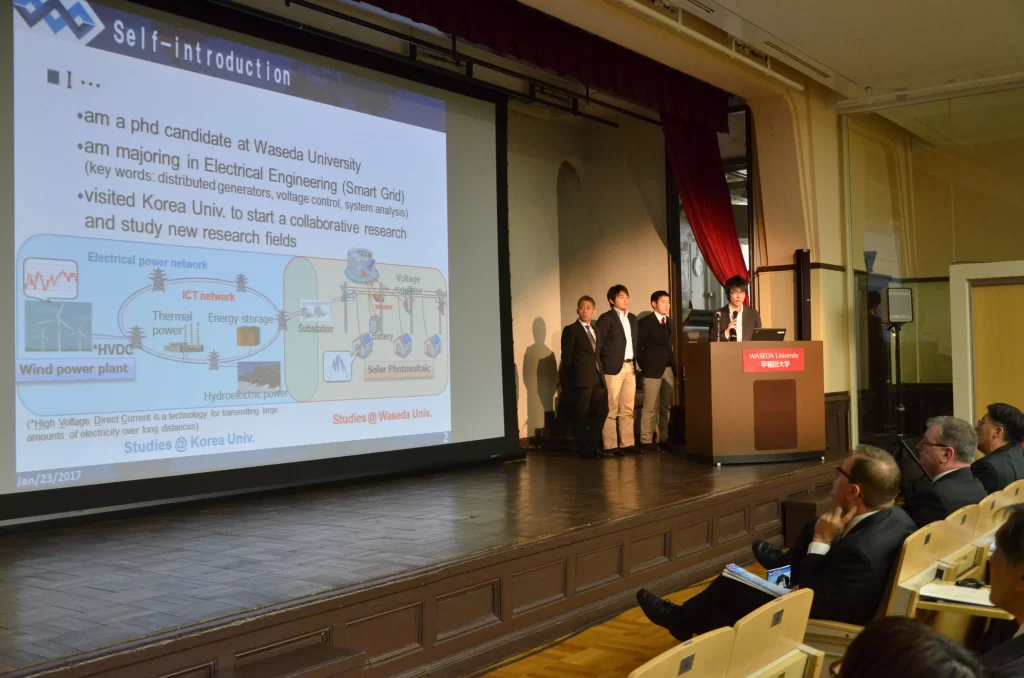
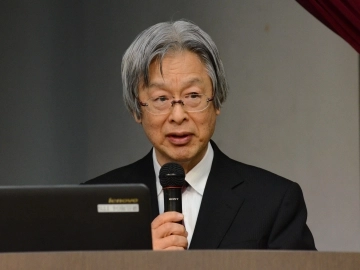
In the closing address, Waseda Professor Seishi Sato, Vice President for Academic Affairs, promised to take its global initiatives to the next level and nurture highly motivated students who will contribute to the global society. “We intend to spread the progressive efforts discussed today university-wide, to globalize the University as a whole, and to further enhance the academic environment.” Professor Sato closed the symposium with the following: “I urge students to take advantage of the opportunities available to them in this uninhibited atmosphere to become true global leaders.”

